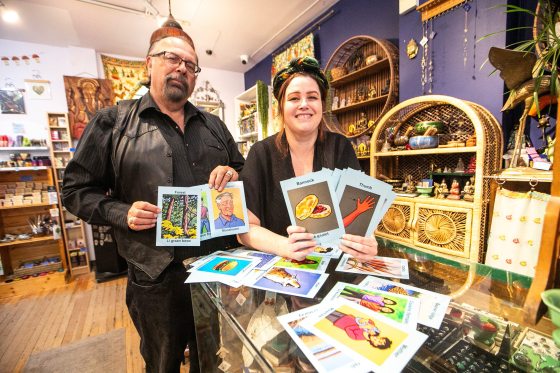FIVE STORIES ON TURTLE ISLAND
1. APTN investigations of newly released documents are unveiling how federal bureaucrats struggled to understand new rules and shifting eligibility standards in the Jordan’s Principle program.
The program seeks to ensure First Nations children receive the same health, education, and social services that all Canadian children receive.
The investigation into more than 1,000 pages of federal documents illustrates how — with costs raising fast — federal officials were dumbfounded on what to do and, after passing several dubious claims, then tightened eligibility so quickly that numerous legitimate applications were rejected, cut, or simply unprocessed.
The mishandling of the Jordan’s Principle program has been called a “fiasco.”
It is perhaps one of Canada’s most under-reported scandals that has costed real lives. Just as one example, the fiasco led to the cancellation of this suicide prevention program in Kashechewan First Nation in northern Ontario.
2. For the fifth year, dozens of Canadian radio stations have collaborated to produce a 12-hour special broadcast featuring stories, songs, and commemorations to recognize the National Day for Truth and Reconciliation.
Entitled “A Day to Listen” and produced by the Gord Downie and Chanie Wenjack Fund, the show airs on stations throughout Canada on Sept. 30, from 6 a.m. to 6 p.m. (local time).
Hosted by Mohawk/Tuscarora poet January Rogers and Haida artist (and former reality TV star) Kiefer Collison, there is lots of local flavour with performances and interviews with Manitobans such as Juno Award-winning singer-songwriter William Prince, Dr. Marcia Anderson, and yours truly. If you’re not near a radio, listen here.
3. It’s NHL training camp time and two dozen Indigenous hockey players and trying out for the big-leagues.
Many eyes are on Peguis First Nation forward and 13th overall 2025 NHL draft pick Carter Bear as he tries to make the roster of the Detroit Red Wings.
There are other intriguing stories of Indigenous hockey players on their teams as the season begins, including Cree defenceman Ethan Bear with the New York Islanders, Six Nations defenceman Brandon Montour with the Seattle Kraken, and 12th overall pick Jack Nesbitt from Wiikwemkoong Unceded Territory trying to crack the lineup of the Philadelphia Flyers.
4. Seven Indigenous artists and leaders were honoured at Rideau Hall in Ottawa as Governor General Mary Simon invested them with the Order of Canada.
Congrats to Cree artist Kent Monkman, Innu poet Joséphine Bacon, Cree historian Richard W. Hill Sr., Stó:lō leader Steven Lewis Point, Anishinaabe land manager Leona Irons-Cummings, Mohawk musician Tom Wilson and Mohawk dancer Santee Smith (Tekaronhiáhkhwa) have now received the country’s highest honour.
5. There is a new online platform from Canadian Virtual Hospice that allows Indigenous peoples — and all other peoples — to honour their loved ones in culturally specific ways, such as through a traditional star blanket design.
The Canadian Healing Quilt gives people a place to create a free memorial quilt square that represents their life stories. Created by Canadian Virtual Hospice and supported by The Winnipeg Foundation, this memorial square can then be “stitched” to others from across the country or remain private.
Elder Albert McLeod is a respected Knowledge Carrier and community leader who came up with the concept. “During the COVID-19 pandemic,” McLeod said, “I witnessed the pain of families unable to honour their loved ones and the lives of friends not being recognized and celebrated. In Indigenous culture, quilts and star blankets offer protection through life’s journey and honour those who have gone to the Spirit World.”
IN PICTURES

Beverly Baker, a wildfire evacuee from Leaf Rapids, is among those returning home after the evacuation order was lifted this week. (John Woods / Free Press files)

Grant and Aynsley Anderson, co-creators of savemichif.ca, show the language physical flash cards at Prairie Sky Books. (Mikaela MacKenzie / Free Press files)
RECONCILI-ACTION OF THE WEEK
Every week I highlight an action, moment, or milestone forwarding reconciliation, illustrating how far Canada has come — and how far the country has yet to go.
Incredible work is being done to prepare for the National Day for Truth and Reconciliation — also known as Orange Shirt Day.
In Winnipeg, there’s the downtown annual walk and powwow hosted by the Southern Chiefs Organization (SCO), great events at places such as the Manitoba Museum and Fort Whyte Alive, and there’s many rural and virtual events, too. Check out this great list of events compiled by SCO across the province and digital platforms here.
As usual, Canada’s first province, treaty, and the birthplace of the Red River Métis is a leader in recognizing the day, with some Manitobans making national contributions.
Winnipeg artist Brooklyn Rudolph-Nicholas was selected to design the Orange Shirts for a national chain retailer.

Brooklyn Rudolph-Nicholas says her design incorporates the North Star, which is called Keewatin in Cree — the Going Home Star — while the eagle symbolizes love. (Ruth Bonneville/Free Press files)
There is even an “Every Child Matters” flag being flown at IKEA and, the Winnipeg Blue Bombers will don their orange jerseys again for warm-up and play the Edmonton Elks in this year’s Orange Shirt Day game on Sept. 27.

Winnipeg Blue Bombers Stanley Bryant (66), Chris Streveler (17), and Jake Thomas (95) show off the new Orange Shirt game jerseys. (Mike Deal/Free Press files)
Remember that wearing an orange shirt is just one step; there are many more to take in this country’s path to truth and reconciliation — something my father reminded us many times.
|

